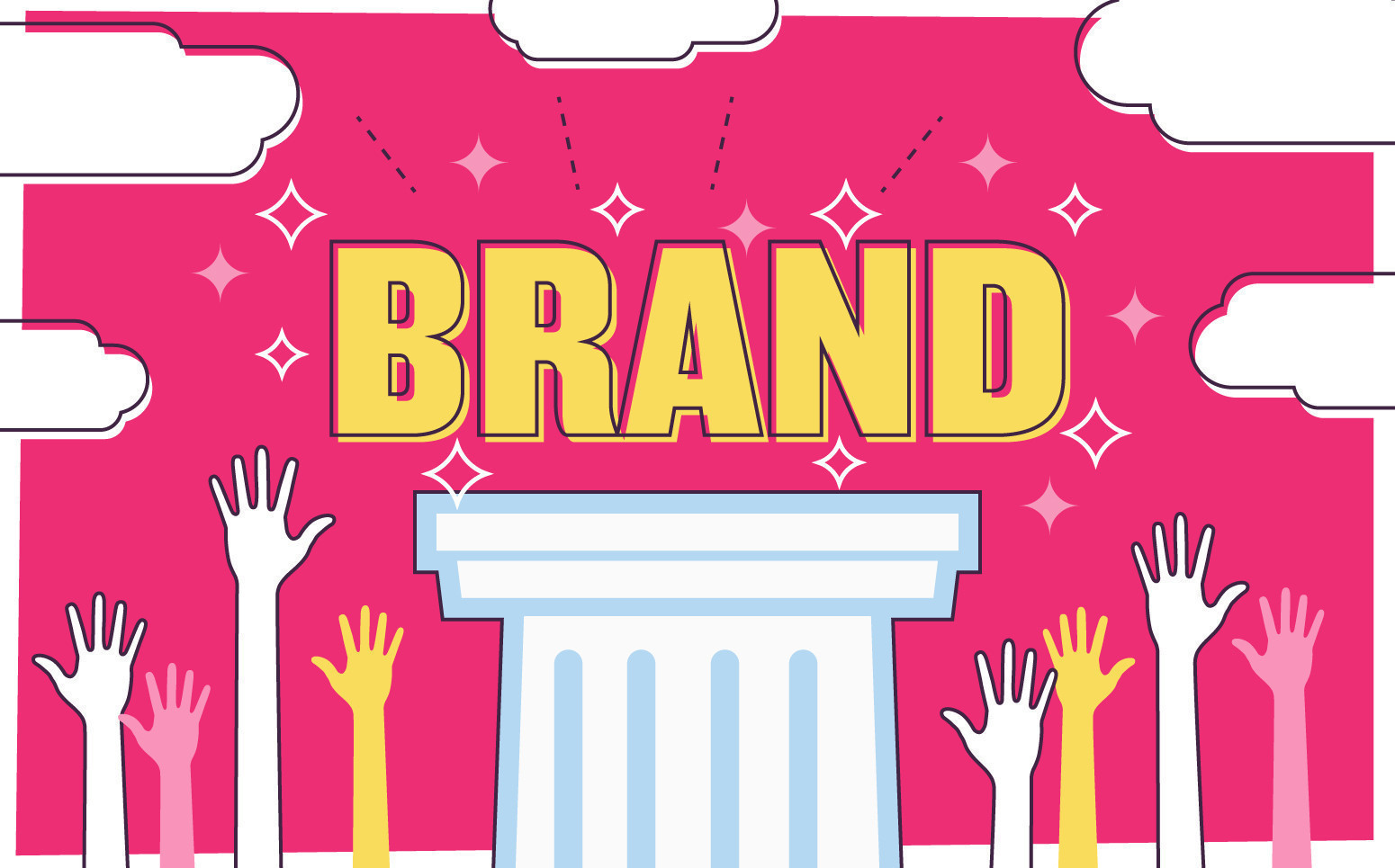We all know that the main goal of advertising and marketing is to drive sales, but creating loyal customers is just as important. Why? Because customer loyalty leads to more sales. And the more loyal your customers, the less work (read: money) it takes to make the next sale. Loyal customers are also willing to pay more for your product or service.

But the benefits of customer loyalty don’t stop there. By talking about and endorsing the products and services they prefer to friends and social media followers, loyal customers help cultivate new sales from people who may not have otherwise known about your brand. That’s a big deal in today’s cluttered marketplace, where competition is fierce—and often less expensive.
SO, NOW THAT WE KNOW WHY BRAND LOYALTY IS SO GREAT, HOW DO WE CREATE IT?
Before addressing that question, let’s take look at what a brand actually is and why someone would be inspired to feel loyal to it. Author Marty Neumeier succinctly defines a brand as “a person’s gut feeling about a product, service or company.” Using that definition, we can say that brand loyalty is loyalty to a feeling.
So, people are loyal to brands that make them feel good. Simple enough. Now let’s talk about some things you can do to make consumers feel good about your brand. Answers will vary for different products and services, but here are a few general examples.
Sell Something Worth Buying
It may seem obvious but unless you’re selling vacuums, you can’t build a raving fanbase if your product sucks—especially if you are trying to compete in a crowded space. If purchasing and using your product or service leaves the buyer with a bad feeling, fugetaboutit. You can’t build loyalty.
Show Some Humanity
Okay, okay. Some brands should feel cold and clinical. The world doesn’t need a catheter brand with a zany, cartoon-porcupine mascot. But most consumer brands benefit from adopting a relatable personality. Instilling character through art and copy makes brands easier to feel good about—easier to feel loyal to. Celebrity endorsements work on the same principle. The endorser’s personality becomes synonymous with the product: I like Mike. If Mike wears Nike and I wear Nike, I’ll be like Mike.

Go Above and Beyond
I’m a weekend-warrior musician who buys tons of equipment I don’t need, causing unnecessary strife in my marriage. Regardless, my favorite online retailer costs a little more than others, but the people who work there are kind and knowledgable, and their service is top notch. So today I received a sweet new amp from them, and inside the box I found a delightful little bag of candies: two Tootsie Rolls, two peppermints and a pack of Laffy Taffy.
This tiny investment of time and money on their part will almost certainly result in me spending thousands more purchasing gear, all in the hopes of breathing life into my long-dead dream of becoming a rockstar. Sorry, sweetie.
Care About Things Your Customers Care About
There’s a car company whose name rhymes with newvaroo. They love animals. They love the earth. They love making a positive difference in the world. I own two of their motorcoaches, and when my wife and I bought them they donated money on our behalf to the causes of our choice: money we likely wouldn’t have given otherwise. In that simple gesture, they made me feel good about my purchase and myself. The monthly payments may be crippling, but hey—somewhere there’s a newly adopted shelter pup with a big happy smile, all thanks to me.
To wrap up, it’s important to remember that strong brands aren’t strong because they have cool ads or a nice logo. They’re strong because they have throngs of loyal customers who only have eyes—and pocketbooks—for them. They have earned that loyalty by consistently providing positive brand experiences that inspire trust and good feelings. Building brand loyalty may not be easy, but the momentum it creates is worth the extra effort and thoughtfulness.

